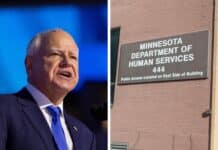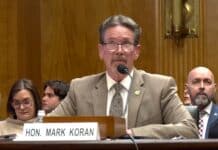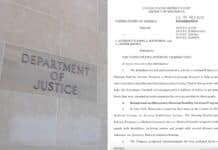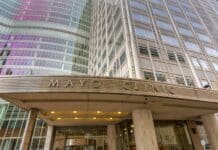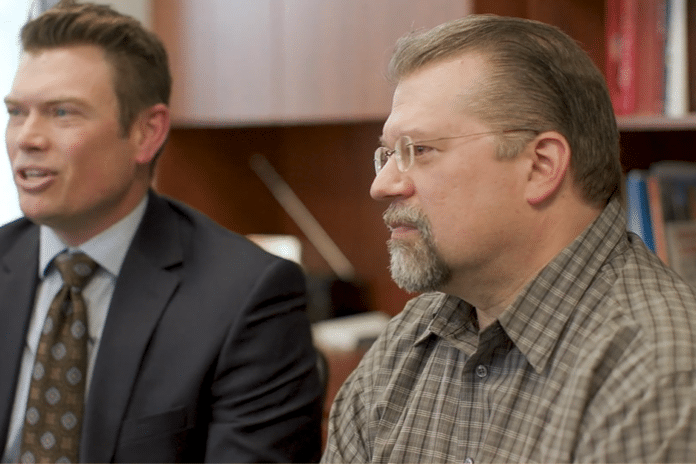
Rodney Maki’s 24-year career as a law enforcement officer with the Federal Reserve Bank of Minneapolis ended in January.
“I don’t like being in the limelight. I hate being here. They pushed me here. They pushed me in this position,” Maki said.
“They said you’ll have a choice, either get the vaccination or you’ll be fired. You’ll be terminated,” he recalled.
The bank employs more than 1,000 people.
It’s one of 12 in the Federal Reserve System, storing currency, processing transactions, and supervising commercial banks in six states.
Officer Maki’s fight with the Fed began last summer when he submitted a “Request for Accommodation” to the vaccine.
Part of that request reads:
“Informed conscience and sincere religious beliefs tell me it is morally unacceptable to receive COVID-19 vaccines that have used cell lines from living persons, killed by the harvest of their organs for use in medical research and production processes.”
“How that was performed and done is clear and simple; they removed a live baby and got that cell line, HEK293,” he said.
The bank granted Maki’s religious exemption in August. He agreed to mask, test weekly, social distance, and not eat in the cafeteria or use the gym. But, by December, bank management changed their minds.
“‘As you know, Mr. Maki, your exemption was temporary.’ Once I heard that, I knew exactly where this was going. That was just before Christmas. It was a tough time,” he said.
On behalf of Officer Maki, the Upper Midwest Law Center has filed a charge of discrimination with the Equal Employment Opportunity Commission.
James Dickey serves as senior trial counsel for the Upper Midwest Law Center
“We looked at this and said this is just wrong. Officer Maki should not be treated this way and we want to do what we can to help,” Dickey said.
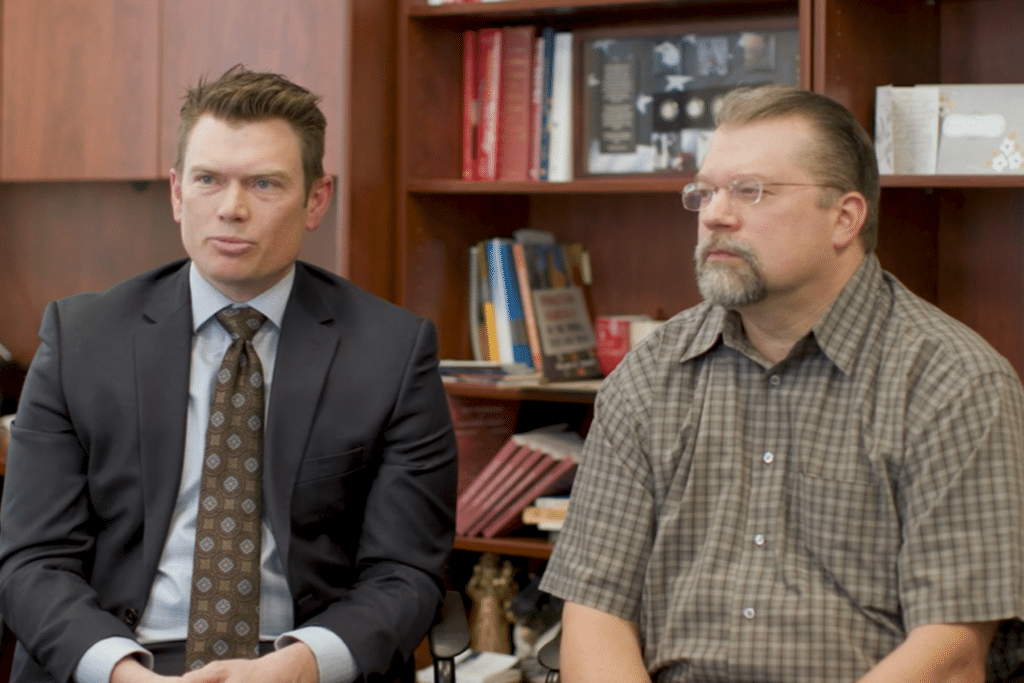
The law firm has been contacted by several other former employees of the Fed with similar stories.
“We just think it’s important that every business in Minnesota and anywhere around the country recognizes sincerely held religious beliefs like Officer Maki’s and not essentially create pretext to fire employees because of those religious beliefs and that’s what the Fed has done here,” Dickey said.
Court documents point to a past case when the bank hired another officer who “requested and was given a religious accommodation,” even “changing schedules and shifts” to meet his needs.
“Whereas this religious exemption was available in the past from the Federal Reserve Bank for other reasons unrelated to the vaccine, suddenly, when you have what appears to many people to be more of a political issue with the vaccine coming around, suddenly religious rights aren’t that important,” Dickey said.
“I try not to speculate on what the motivations of the Federal Reserve might be, but we’ve seen a lot of public pronouncements by the president of the Federal Reserve that have said things along the lines of, ‘We want to have full compliance with the vaccine mandates,’” he added.
In a statement to Alpha News, a spokesperson for the Federal Reserve Bank said it is “not able to comment on individual employment matters.”
“Our priority is employee health and safety, and our COVID-19 vaccination policies and related procedures are designed to ensure a safe and healthy workplace for everyone. Consistent with applicable law, the bank provides reasonable accommodations to employees with a medical condition or sincerely held religious belief that precludes them from becoming vaccinated, as long as an accommodation does not present an undue hardship, including health and safety risks,” the spokesperson said.
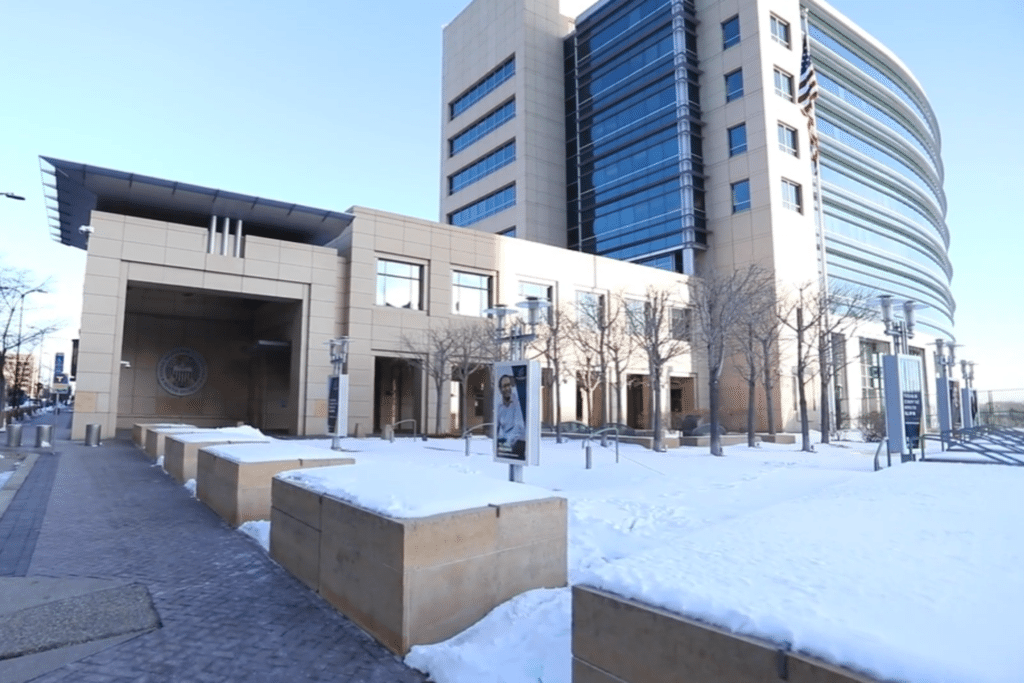
“It seems hard to avoid the conclusion that this is political when they had every reason to delay his termination and they chose not to. They had multiple different jobs that were available. They had previously accommodated shift changes. They chose not to do any of that for Officer Maki. To me that just screams out an unwillingness to accommodate,” Dickey explained.
“They pushed me into this corner and gave me no choice,” Maki added.
It’s not the way Maki wanted to end his long career at the place and for the people he swore to serve and protect.
“As far as the choice I had, there was no choice. The consequences are great,” Maki said.
In addition to being terminated, Maki has been denied unemployment benefits after leaving the Fed. He’s also fighting that decision in court.
Liz spoke to another former employee of the bank who was also fired for failing to be vaccinated. She’ll have more on the topic on Thursday on the Liz Collin Reports podcast.
Liz Collin
Liz Collin is a multi-Emmy-Award-winning investigative reporter, news anchor, and producer who cares about Minnesota. She is the producer of The Fall of Minneapolis and Minnesota v We the People documentary films, and author of the Amazon best-selling book, They’re Lying: The Media, the Left, and The Death of George Floyd. Her work has prompted important state laws. Yet perhaps most of all, Liz has been giving a voice to the truth—and helping others tell their stories—for more than 20 years.

